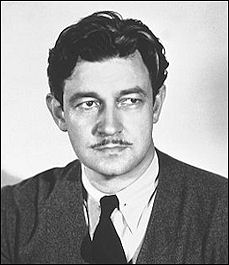And The Winner Is columnist Scott Feinberg has written an intelligent and comprehensive (and somewhat obsequious) piece on Up In The Air director-screenwriter Jason Reitman. One portion in particular caught my interest — a listing of similarities between Reitman and legendary director, screenwriter and social satirist Preston Sturges.


(l.) Jason Reitman, (r.) Preston Sturges
“Reitman has demonstrated the rare ability to construct fun movies around difficult subjects,” Feinberg writes — the cigarette lobby in Thank You for Smoking, teen pregnancy in Juno and the current economic recession in Up in the Air. His dramedies are very much in the mold of earlier films by Stanley Kubrick (Lolita, Dr. Strangelove), Hal Ashby (Bound for Glory, Being There), and especially Preston Sturges, another specialist in snappy dialogue.
Sturges’ directorial debut, The Great McGinty (1940) is, like Reitman’s directorial debut Thank You for Smoking, about a bullshitter whose underhanded behavior eventually catches up with him. Okay, I’ll buy that one. Feinberg then notes Sturges’ most commercially-successful film “The Miracle of Morgan’s Creek” (1944) is, like Reitman’s most commercially-successful film Juno, about an eccentric young girl’s accidental pregnancy. Yeah, okay. Feinberg further observes that Sturges’ masterful Sullivan’s Travels (1941) is somewhat similar to Reitman’s masterpiece Up in the Air about a wealthy guy who ventures out of his bubble and witnesses the full extent of America’s economic meltdown.
I don’t know about that last one. George Clooney‘s Ryan Bingham seems to understand the devastation that people are feeling all over from the get-go. I didn’t detect any change of heart due to the Great Recession coinditions. He doesn’t go “oh, wow, I have to change my life!: when he learns of a bridge-jumping suicide by a young African American woman who’d been fired by Anna Kendrick’s character — in fact he deflects and shows little emotion. If there’s a game-changer, it seems to be his experience with Vera Farmiga‘s character at his sister’s wedding. Soon after he more or less ambles into a place in which he’d like to have a full-on relationship with Farmiga.
Otherwise I’ll buy the Sturges-Reitman analogy, as far as it goes. Feinberg doesn’t mention they were both to the manor born, so I’m mentioning it here and now.
